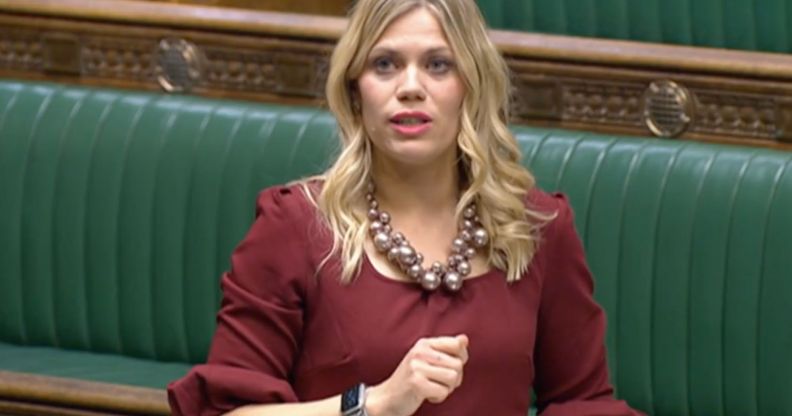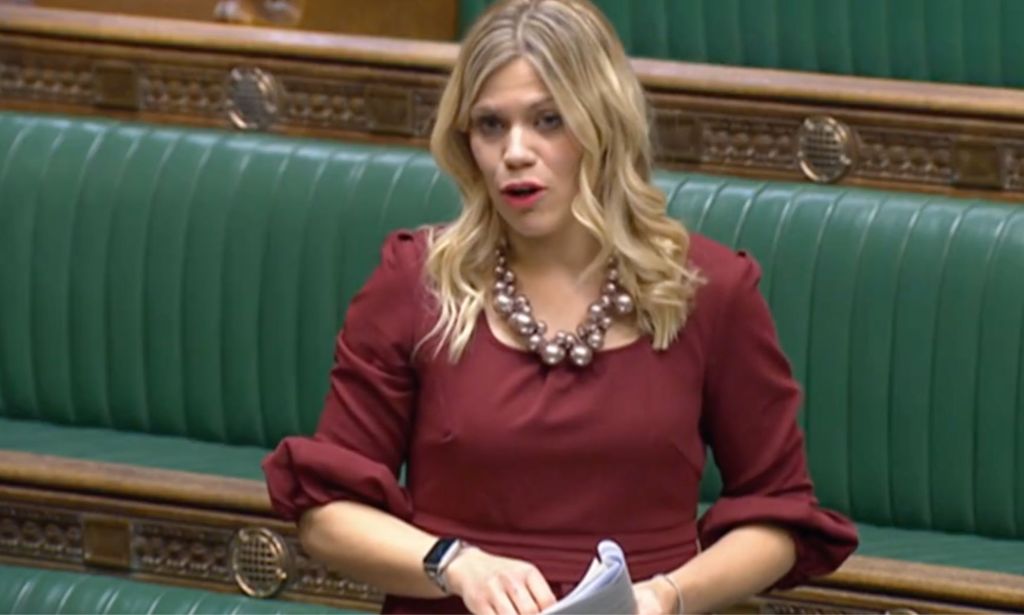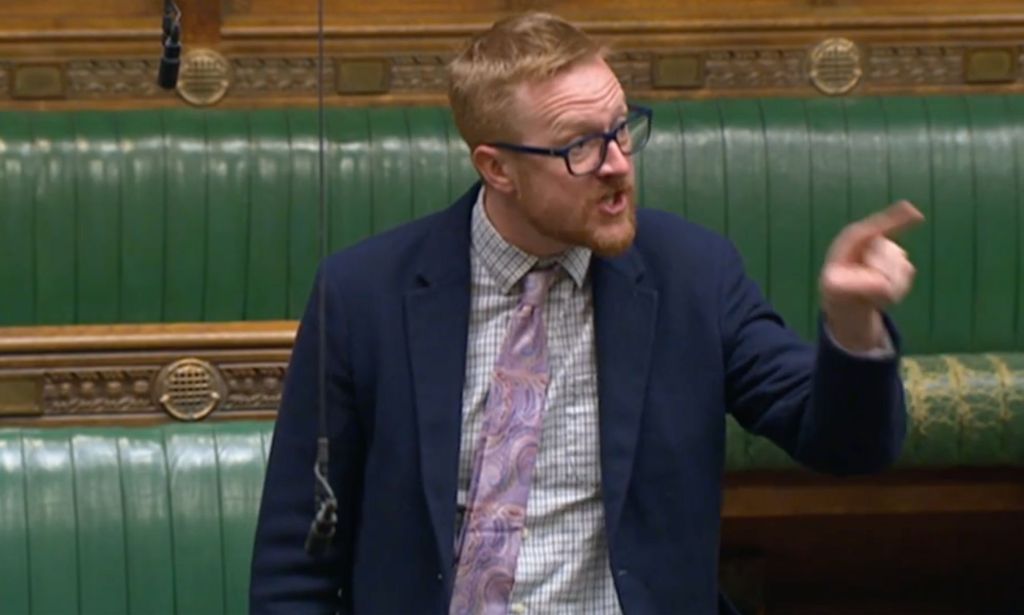Tory MP Miriam Cates condemned for linking trans people to predators in ‘disgusting’ Commons speech

Tory MP Miriam Cates used anti-trans dog whistles in a hate filled House of Commons speech after the UK government blocked Scotland’s Gender Recognition Reform bill. (Parliament TV)
Tory MP Miriam Cates has been roundly lambasted for linking trans people to predators in a “disgusting”, “dog whistle” filled Commons speech.
Cates spoke in the House of Commons on Tuesday (17 January) just a short while after the UK government blocked Scotland’s monumental Gender Recognition Reform bill.
In December, Holyrood passed the landmark legislation with an 86-39 vote to make it easier for trans people to gain legal recognition of their affirmed gender by acquiring a Gender Recognition Certificate (GRC).
Just a few weeks later, the UK government announced on Monday (16 January) its unprecedented decision to use a Section 35 order under the Scotland Act to prevent the Scottish bill from becoming law.
Addressing the Commons, Cates spewed “shameful transphobic dogwhistles” to justify why she believed it was “absolutely right” for the Tory government to block Scotland’s gender reform law.
Cates claimed the bill would make it “vastly easier for a predator to gain access to children” and alleged it would have a “chilling effect” on single-sex spaces.
However, her argument failed to recognise the Scottish gender reform bill has no effect on the UK Equality Act, and Holyrood put many safeguards during the countless discussions on the pro-trans bill.
She spoke, at large, about an encounter where she made eye contact with a person, whom she assumed to be trans, in the toilets.
“It will change the social contract. In this country, we recognise in toilets, in changing rooms, in public places there are areas where only women are allowed,” Cates said.
She continued: “I had an experience recently in a restaurant where a man dressed as a woman walked into the toilets – I was on my own in the toilets, and he stood behind me and stared at me, looking at me in my eyes.
“Now I have no idea if he intended me any harm, but my evolved instinct as a woman was to be frightened because unlike almost any other species, women are far less powerful than men. We can’t defend ourselves.”

The Tory MP then claimed men are stronger than women – a hateful narrative that fuelled countless anti-trans sports bans but is not based in actual science.
She asserted women have “evolved to be wary of men in intimate spaces”, but she failed to cite a scientific body or peer-reviewed study where this evolutionary pattern of behaviour could be traced.
Cates finished her speech by claiming the Scottish pro-trans legislation threatens the “understanding of our law which should be based on fact”.
Labour MP Lloyd Russell-Moyle immediately stood up to Miriam Cates’ awful bigotry, saying her speech was “probably one of the worst transphobic, dog whistle speeches” he’s heard in a “long time”.
“The idea of linking trans people with predators, frankly, is disgusting and you should be ashamed,” Russell-Moyle said, getting shot down by the speaker for his emotional tone.

Russell-Moyle later resumed his response but said it was difficult to moderate himself in the face of anti-trans rhetoric.
“It is difficult when we talk about these emotional matters but the reality of this is this Section 35 is the new Tories Section 28,” the Labour MP said. “It is their continuation of a war against a group of people, their culture war that they want to pursue, and they think it will advantage them in the polls.”
Russell-Moyle tweeted Miriam Cates’ words were “one of the most transphobic and bizarre speeches with an MP” and condemned her for “saying that changing gender can endanger children”.
“The idea that a predator has an advantage to work in a school or nursery if they have a Scottish GRC is dog whistle bigotry I could not let stand,” he wrote.
He continued: “There are tweaks and safeguards in any bill that can be added, I’m happy to talk on those arguments but not transphobic tropes.
“Tory government and a few of their extremist supporters across the house think they will win. It didn’t work in Australia or the USA – it won’t work here.”
The Tory government announced it would halt the Gender Recognition Reform (Scotland) bill Monday, which was passed by the Scottish parliament on 22 December with mass cross-party support.
The measure would make it easier for trans people to change the gender listed on their birth certificate by removing requirements for a medical diagnosis of gender dysphoria and lower the age of applicants to 16.
In an unprecedented move, Scottish secretary Alister Jack said the UK government would use a Section 35 order under the Scotland Act to prevent the Scottish bill from becoming law because he is “concerned that this legislation would have an adverse impact on the operation of Great Britain-wide equalities legislation”.
This is the first time such an order has been used since Scotland was given devolved powers. LGBTQ+ activists warned the move marked the “beginning of the end” of the union of the UK, and Scottish first minister Nicola Sturgeon described it as a “full-frontal attack” on democracy.
How did this story make you feel?

